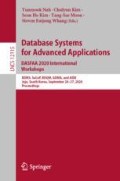Abstract
In MOOCs, course reviews are valuable sources for exploiting learners’ attitudes towards the courses provided. This study employed an innovative structural topic modeling technique to analyze 1920 reviews of 339 courses regarding computer science to understand what primary concerns the learners had. Nine major topics, including course levels, learning perception, course assessment, teaching styles, problem solving, course content, course organization, critique, and learning tools and platforms were revealed. In addition, we investigated how the identified nine topics varied across reviews with different ratings. Results indicated that negative reviews tended to relate more to issues such as course assessment, learning tools and platforms, and critique, while positive reviews concerned more about issues such as course levels, course organization, and learning perception. This study provided tutors with novel implications for developing online courses, particularly computer science courses.
Access this chapter
Tax calculation will be finalised at checkout
Purchases are for personal use only
Notes
References
Deng, R., Benckendorff, P., Gannaway, D.: Progress and new directions for teaching and learning in MOOCs. Comput. Educ. 129, 48–60 (2019)
Gardner, J., Brooks, C.: Student success prediction in MOOCs. User Model. User-Adap. Inter. 28, 127–203 (2018)
Zhu, M., Sari, A., Lee, M.M.: A systematic review of research methods and topics of the empirical MOOC literature (2014–2016). Internet High. Educ. 37, 31–39 (2018)
Shah, D.: By the numbers: MOOCs in 2018 [Web log post] (2018)
Henderikx, M.A., Kreijns, K., Kalz, M.: Refining success and dropout in massive open online courses based on the intention–behavior gap. Dist. Educ. 38, 353–368 (2017)
Sun, J.C.-Y., Kuo, C.-Y., Hou, H.-T., Lin, Y.-Y.: Exploring learners’ sequential behavioral patterns, flow experience, and learning performance in an anti-phishing educational game. J. Educ. Technol. Soc. 20, 45–60 (2017)
Tang, J.K.T., Xie, H., Wong, T.L.: A big data framework for early identification of dropout students in MOOC. In: Lam, J., Ng, K.K., Cheung, S.K.S., Wong, T.L., Li, K.C., Wang, F.L. (eds.) ICTE 2015. CCIS, vol. 559, pp. 127–132. Springer, Heidelberg (2015). https://doi.org/10.1007/978-3-662-48978-9_12
Chiu, T.K., Hew, T.K.: Factors influencing peer learning and performance in MOOC asynchronous online discussion forum. Australas. J. Educ. Technol. 34, 16–28 (2018)
Wang, X., Yang, D., Wen, M., Koedinger, K., Rosé, C.P.: Investigating how student’s cognitive behavior in MOOC discussion forums affect learning gains. In: International Educational Data Mining Society (2015)
Liu, S., Peng, X., Cheng, H.N., Liu, Z., Sun, J., Yang, C.: Unfolding sentimental and behavioral tendencies of learners’ concerned topics from course reviews in a MOOC. J. Educ. Comput. Res. 57, 670–696 (2019)
Hew, K.F.: Promoting engagement in online courses: what strategies can we learn from three highly rated MOOCS. Br. J. Educ. Technol. 47, 320–341 (2016)
Zhou, L., Ye, S., Pearce, P.L., Wu, M.-Y.: Refreshing hotel satisfaction studies by reconfiguring customer review data. Int. J. Hospital. Manag. 38, 1–10 (2014)
Mankad, S., Han, H.S., Goh, J., Gavirneni, S.: Understanding online hotel reviews through automated text analysis. Serv. Sci. 8, 124–138 (2016)
Chen, X., Zou, D., Cheng, G., Xie, H.: Detecting latent topics and trends in educational technologies over four decades using structural topic modeling: a retrospective of all volumes of computer & education. Comput. Educ. 151, 103855 (2020)
Chen, X., Yu, G., Cheng, G., Hao, T.: Research topics, author profiles, and collaboration networks in the top-ranked journal on educational technology over the past 40 years: a bibliometric analysis. J. Comput. Educ. 6, 563–585 (2019)
Chen, X., Xie, H., Wang, F.L., Liu, Z., Xu, J., Hao, T.: A bibliometric analysis of natural language processing in medical research. BMC Med. Inform. Decis. Mak. 18, 14 (2018)
Hao, T., Chen, X., Li, G., Yan, J.: A bibliometric analysis of text mining in medical research. Soft. Comput. 22, 7875–7892 (2018)
Chen, X., Zou, D., Xie, H.: Fifty years of British Journal of Educational Technology: a topic modeling based bibliometric perspective. Br. J. Educ. Technol. 51, 692–708 (2020)
Xie, H., Chu, H.-C., Hwang, G.-J., Wang, C.-C.: Trends and development in technology-enhanced adaptive/personalized learning: a systematic review of journal publications from 2007 to 2017. Comput. Educ. 140, 103599 (2019)
Roberts, M.E., Stewart, B.M., Tingley, D.: stm: R package for structural topic models. J. Stat. Softw. 10, 1–40 (2014)
Roberts, M.E., et al.: Structural topic models for open-ended survey responses. Am. J. Polit. Sci. 58, 1064–1082 (2014)
Stratton, C., Grace, R.: Exploring linguistic diversity of MOOCs: implications for international development. Proc. Assoc. Inf. Sci. Technol. 53, 1–10 (2016)
Kashyap, A., Nayak, A.: Different machine learning models to predict dropouts in MOOCs. In: 2018 International Conference on Advances in Computing, Communications and Informatics (ICACCI), pp. 80–85. IEEE (2018)
Hu, N., Zhang, T., Gao, B., Bose, I.: What do hotel customers complain about? Text analysis using structural topic model. Tour. Manage. 72, 417–426 (2019)
Zou, D., Xie, H.: Personalized word-learning based on technique feature analysis and learning analytics. J. Educ. Technol. Soc. 21, 233–244 (2018)
Acknowledgments
This research received grants from the Standing Committee on Language Education and Research (EDB(LE)/P&R/EL/175/2), the Education Bureau of the Hong Kong Special Administrative Region, the Internal Research Grant (RG93/2018-2019R), and the Internal Research Fund (RG 1/2019-2020R) of the Education University of Hong Kong.
Author information
Authors and Affiliations
Corresponding author
Editor information
Editors and Affiliations
Rights and permissions
Copyright information
© 2020 Springer Nature Switzerland AG
About this paper
Cite this paper
Chen, X., Zou, D., Xie, H., Cheng, G. (2020). What Are MOOCs Learners’ Concerns? Text Analysis of Reviews for Computer Science Courses. In: Nah, Y., Kim, C., Kim, SY., Moon, YS., Whang, S.E. (eds) Database Systems for Advanced Applications. DASFAA 2020 International Workshops. DASFAA 2020. Lecture Notes in Computer Science(), vol 12115. Springer, Cham. https://doi.org/10.1007/978-3-030-59413-8_6
Download citation
DOI: https://doi.org/10.1007/978-3-030-59413-8_6
Published:
Publisher Name: Springer, Cham
Print ISBN: 978-3-030-59412-1
Online ISBN: 978-3-030-59413-8
eBook Packages: Computer ScienceComputer Science (R0)

